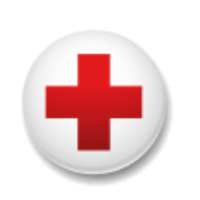By Y. Hope Osborn
The American Red Cross is known for its response to large-scale disasters around the world, from the devastating 2005 Hurricane Katrina of the American Gulf Coast, to the deadly 2010 earthquake of Haiti. Many people are not aware of the wide-spread disaster that devastates the U.S. The Red Cross responds to about 70,000 natural and man-made disasters in the U.S. each year. House fires alone account for a Red Cross response every 80 seconds.
Disaster is a California earthquake that disrupts communication and limits the water supply in your city. Disaster is an Arkansas tornado that cuts a swathe through your neighborhood. Disaster is an electrical short that burns down your home. Disaster is also the cancer calling for chemotherapy that kills your blood’s protective platelets. Disaster is the people suffering these disasters.
These disasters aren’t often reported because they seem unrelated to your average individual—until it is you. The Red Cross’s mobile teams often go unnoticed—until they pull up to your family home. The attention a massive wildfire would get is unrelated to the lack of attention one individual fire would get, but it is at all these individual fires that Red Cross volunteers show up to find a means for people to live for a few days through the generous support of local businesses, organizations and individuals.
It is because of the generous support and partnership with businesses and organizations and individuals that the Red Cross can provide food, shelter, counseling, medical treatment, blood products and other help of every shape and kind to alleviate people’s suffering.
But donations of funds, blood product or other provisions aren’t enough without the Red Cross’s most critical resource—people.
The Red Cross is dependent on people to volunteer. People are needed for supplying money and blood products, and volunteers are needed to train for showing up at a moment’s notice at a fire at an apartment complex. Volunteers are needed to greet and check-in blood donors at blood centers and people were needed to counsel survivors at the theater shooting in Aurora, CO. Volunteers are number one of all the resources utilized by the Red Cross in its mission to prevent and alleviate suffering.
The Red Cross is people in Little Rock, AR, taking blood donations at a blood drive for cancer-patients and helping residents at my own complex on the day their homes burned to the ground; in New Orleans, LA, offering aid when the levees burst because of Hurricane Katrina; in Aurora, CO, providing counselors after the shooting at the midnight screening of the film The Dark Knight Rises and in every American military outpost in the world, supporting our soldiers and their families.
Volunteers are at the heart of the Red Cross mission to “prevent and alleviate human suffering in the face of emergencies by mobilizing the power of volunteers and the generosity of donors.” The assistance the Red Cross is not possible without the compassion and gift of time its volunteers offer.
The American Red Cross is people caring for people.
All of us can use our individual skills, interests and resources to help further the cause of the Red Cross.
To become a Red Cross volunteer, visit redcross.org/volunteer.
To give blood or platelets, visit redcrossblood.org.
To make a donation, visit redcross.org/donate or text REDCROSS to 90999 to give $10 to disaster relief.

